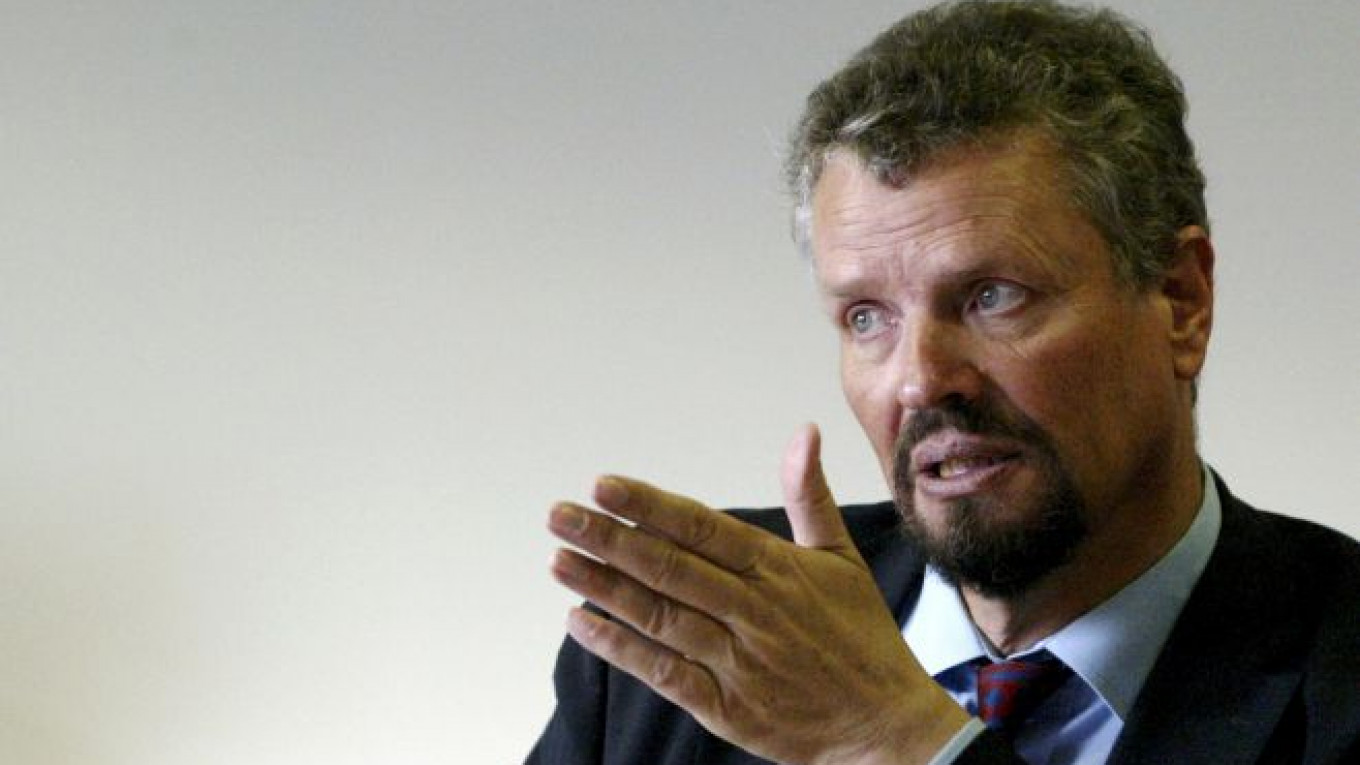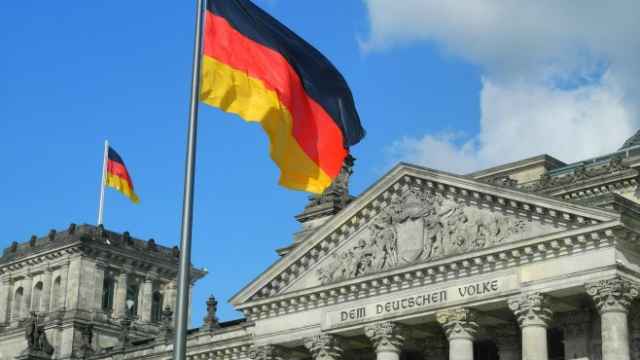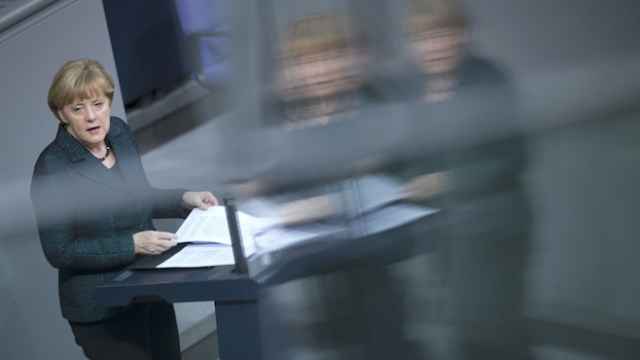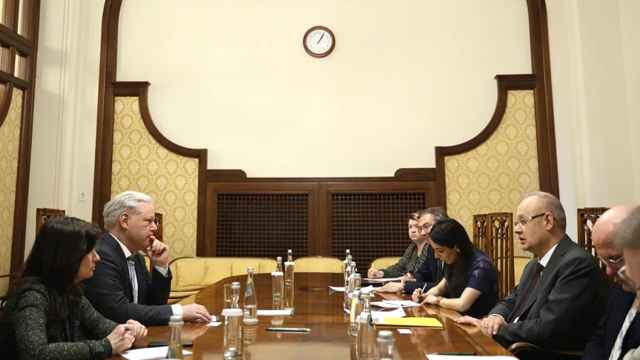BERLIN — A leading Social Democrat (SPD) who has favored a conciliatory approach to Russia in the past says his party is fully behind the tough line on sanctions taken by Chancellor Angela Merkel and won't allow Moscow to split the German coalition or Europe.
The SPD's attitudes towards Russia were shaped by former chancellor Willy Brandt's "Ostpolitik" engagement policy in the 1970s and the crumbling Soviet Union's support for German reunification.
Comments by SPD Foreign Minister Frank-Walter Steinmeier last month raised questions about whether cracks were emerging in Merkel's right-left "grand coalition." Steinmeier had expressed concern that Russia would be destabilized unless EU sanctions were eased.
But Gernot Erler, a veteran SPD lawmaker who holds the title of coordinator for German-Russian relations, brushed aside suggestions of a split, even as he acknowledged differences in tone between his party and Merkel's conservatives.
"Certainly the focus of Social Democrat politicians at the moment is more obviously on the dangers arising from Russia's economic weakness," Erler told Reuters in an interview.
"The chancellery, by contrast, is stressing at the moment a very strict conditionality for any easing of sanctions. But the SPD is not questioning this. Germany is very interested in maintaining an EU consensus and would not do anything that would call this into question," Erler said.
In the early stages of the Ukraine crisis, Erler stressed the need for dialogue over confrontation with Russia, but his tone and that of other SPD members has shifted as evidence of Russian intervention in eastern Ukraine has mounted.
The Kremlin has stepped up a propaganda campaign in Germany and other European countries in recent months to try to sway Russia sympathizers and prevent a renewal of EU sanctions when they start to expire in March. They were imposed for a one-year period.
Merkel and Steinmeier have taken the lead in trying to convince Putin to engage with the West over Ukraine, but to no avail.
"If we see progress on the 12 points of the Minsk accord, then we should think about easing sanctions," Erler said.
But he made clear that so far Russia has not done enough to implement the plan, which requires a lasting cease fire in eastern Ukraine, border controls, the withdrawal of troops and the setting up of a buffer zone.
Erler said the united German position was likely to have taken Putin by surprise. Several former German chancellors, including Gerhard Schroeder, who cultivated a close macho rapport with Putin when he was in office, have come out against the Merkel government's stance towards Moscow, arguing that she has not done enough to forge a compromise with the Russian leader.
A Message from The Moscow Times:
Dear readers,
We are facing unprecedented challenges. Russia's Prosecutor General's Office has designated The Moscow Times as an "undesirable" organization, criminalizing our work and putting our staff at risk of prosecution. This follows our earlier unjust labeling as a "foreign agent."
These actions are direct attempts to silence independent journalism in Russia. The authorities claim our work "discredits the decisions of the Russian leadership." We see things differently: we strive to provide accurate, unbiased reporting on Russia.
We, the journalists of The Moscow Times, refuse to be silenced. But to continue our work, we need your help.
Your support, no matter how small, makes a world of difference. If you can, please support us monthly starting from just $2. It's quick to set up, and every contribution makes a significant impact.
By supporting The Moscow Times, you're defending open, independent journalism in the face of repression. Thank you for standing with us.
Remind me later.






